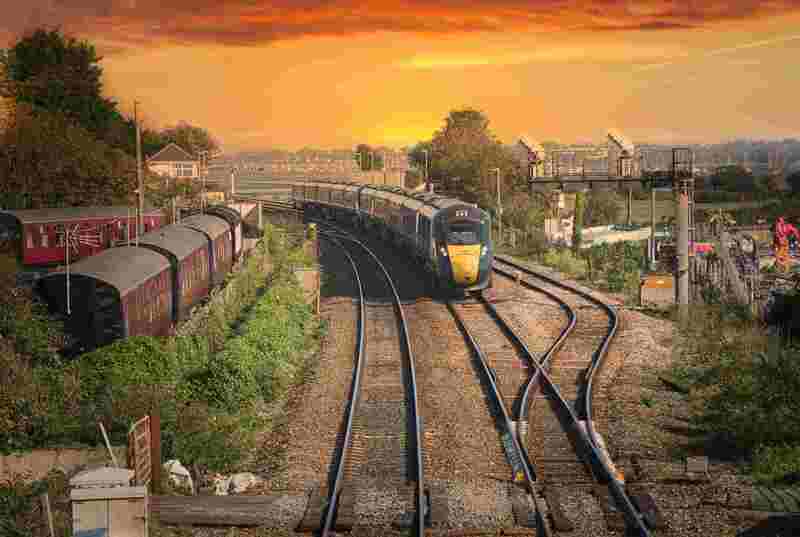Grant Shapps and the Conservatives are trying their hardest to portray the rail strikes as a clash between the travelling and tax-paying public and rail workers. But that’s not how it looks from where I’m sitting.
Social media is full of comments such as “I don’t drive. I depend on public transport. Without the trains I’m separated from my family. I support the strike 100%, for all rail workers and their families.” and “I’m a Registered Nurse. I use public transport frequently. The striking rail staff have my complete support. All workers, private and public must stand together in the struggle for improved pay, terms and conditions.” Interviews in the Guardian tell a similar story. And I agree with them.
Almost everybody in this country agrees we want a safe, efficient, reliable, affordable and well managed rail service. And it’s clear that a majority of people consistently believe that the way to deliver such a rail service is to bring it back into public ownership. This has always been Green Party policy because we want our railways to work for the public good, rather than prioritising making profits for private rail companies.
Many people understand that the cost of living crisis is actually an income crisis. We cannot therefore expect those on the lowest incomes who work in our essential services – in transport, health, education, social care and other sectors – to accept a pay cut in real terms. Especially in the same week that the Government proposes unlimited pay for City bosses.


Rail workers’ unions worked closely with the Government and employers throughout the pandemic (through the Rail Industry Recovery Group) to keep things moving, get key workers to work and accepted pay freezes. Unions showed copious goodwill, yet the response has been to keep cutting pay and jobs. Ultimately, the government decides how the railway is funded, and they have provoked this strike as part of their politics of division. It’s no wonder rail workers voted 89% to strike. I support them.
The government says it is ‘working on behalf of the travelling public’ by seeking to ‘modernise’ the railways and introduce ‘efficiency savings’. If the government was genuinely supporting the travelling public it would invest in the railways properly, cut fares and incentivise people back onto trains.
Encouraging far greater use of public transport is also critical to tackling the climate crisis.
While we have made progress with reducing the climate impact of our energy systems, transport is lagging far behind. Between 1990 and 2019, greenhouse gas emissions in energy supply declined by 66%, but only by 5% in transport.
It is clear that the climate crisis demands more public transport and less private transport. We need night trains that can carry us to our holidays in the UK or elsewhere in Europe, rather than the flights that may seem cheap to us but whose price is borne by our climate. And most of all, we need rail travel to be cheaper than more polluting forms of travel. Only significant public investment can achieve that.
Where Greens are in government there are good examples of how to make climate-friendly transport the cheapest and easiest option. In Germany a €9 monthly ticket has been made available to users of the national rail network, while in Scotland, free bus travel is enjoyed by all under 22s.
Rather than giving in to the Tories’ politics of division, we should all be arguing for a publicly owned and properly funded railway, with a workforce that is paid properly to reflect the skilled and vitally important work they do. Otherwise we will all lose – and so will our climate.

